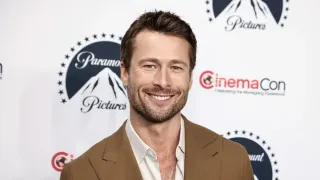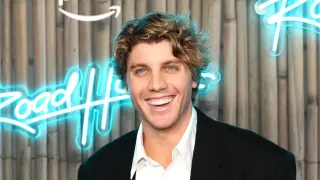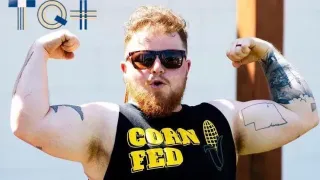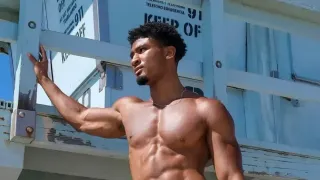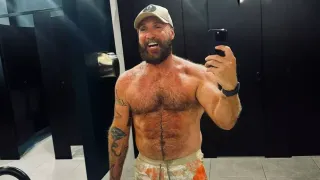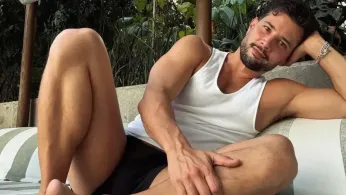
5 hours ago
Ricky Martin’s Influence Empowers 'Fire Country' Star Rafael De La Fuente to Embrace His Authentic Self
READ TIME: 20 MIN.
In the landscape of contemporary entertainment, few moments resonate as deeply as when an established figure’s courage paves the way for others to live authentically. Such is the case with Ricky Martin, whose journey as an openly gay global pop icon has inspired countless individuals, including rising television star Rafael De La Fuente. De La Fuente, best known for his roles in "Dynasty" and the hit CBS drama "Fire Country", recently spoke out about how Martin’s visibility and authenticity were instrumental in his own coming out process, describing the experience as “liberating” and transformative .
Ricky Martin’s path to self-acceptance and public openness was anything but straightforward. After years of speculation, Martin came out as a “proud homosexual man” in 2010, sharing his truth with millions of fans. In a statement on his website, Martin wrote, “I am proud to say that I am a fortunate homosexual man. I am very blessed to be who I am. Too heavy for me to keep inside. Something worth celebrating. Many people told me... 'all the years you've worked and everything you've built will collapse'. It fills me with strength and courage” .
Martin’s public embrace of his identity was a watershed moment for the Latinx and global LGBTQ+ communities, challenging stereotypes and breaking barriers. His decision to live openly has had far-reaching impacts, especially for queer artists and entertainers navigating the complexities of fame and personal truth.
For Rafael De La Fuente, Martin’s example provided both a roadmap and a sense of assurance that authenticity need not come at the expense of a successful career. In a recent interview, De La Fuente expressed gratitude for Martin’s openness, stating that seeing someone of Martin’s stature living unapologetically helped him step into his own power as an out gay actor .
De La Fuente reflected on the pressures of the industry, where LGBTQ+ actors have historically faced discrimination, typecasting, or the expectation to remain closeted. He credits Martin not only for his boldness but for the way he normalized queer visibility in mainstream media, saying, “Ricky Martin liberated me to live my best gay life. There’s nothing more powerful than seeing someone like you succeed by being themselves” .
The ripple effect of Martin’s visibility extends beyond individual empowerment; it has contributed to a broader shift in media representation. Studies consistently show that positive LGBTQ+ role models in entertainment can help foster acceptance, reduce stigma, and encourage others to come out . For Latinx communities in particular, where cultural conservatism may pose additional challenges, Martin’s openness has helped redefine public perceptions and expand the narrative around queer identity.
De La Fuente’s own career trajectory illustrates this change. Since coming out, he has taken on increasingly prominent roles, challenging stereotypes and embodying multifaceted queer characters on screen. His work on *Fire Country* and previous series such as *Dynasty* has been praised for its authenticity and emotional depth, contributing to a richer, more inclusive media landscape .
The relationship between established icons and emerging talent in the LGBTQ+ community is not limited to visibility alone. Mentorship, solidarity, and mutual support play a critical role in helping queer individuals navigate the unique challenges of public life. De La Fuente has spoken about the importance of finding allies and role models, noting that Martin’s example provided a sense of community and hope during vulnerable moments.
“Knowing that Ricky was out there, living his truth and thriving, made a world of difference for me,” De La Fuente shared. “It reminded me that I could have both a successful career and an authentic life” .
While progress has been made, the entertainment industry—and society at large—still presents obstacles for LGBTQ+ individuals. De La Fuente and Martin have both pointed to the persistence of homophobia, stereotyping, and pressure to conform. Martin, who faced speculation and tabloid scrutiny throughout his career, continues to advocate for greater acceptance, stating in a recent interview, “I do see myself in another relationship. I’m not talking about the near future, but I like being in love, I like being in a relationship, I like waking up in the morning to a morning kiss, breakfast, and complicity” .
For De La Fuente, Martin’s resilience amid personal and professional challenges has been a source of inspiration. “Ricky Martin showed that you can survive and thrive, even when the world tries to tear you down,” he said .
As more queer actors and creators come out, the entertainment industry is gradually embracing a wider spectrum of identities and stories. De La Fuente’s journey reflects this new chapter, where authenticity is increasingly celebrated rather than stigmatized. His success—and the success of artists like Ricky Martin—offers hope to LGBTQ+ youth and aspiring performers worldwide.
“Visibility matters,” De La Fuente emphasized. “When you see someone like Ricky Martin succeed, it tells you that you belong. It tells you that your story is worth telling” .
Ricky Martin’s decision to live openly as a gay man marked a turning point for LGBTQ+ visibility in entertainment. His influence on Rafael De La Fuente—and countless others—demonstrates the enduring power of authenticity, mentorship, and representation. As De La Fuente continues to forge his path in Hollywood, his story stands as a testament to the liberating effect of living one’s truth, and the importance of community in overcoming adversity.
The journey of these two artists highlights both the progress that has been made and the work that remains. Their voices, and those of the broader LGBTQ+ community, remind us that liberation is possible—and that it is a gift worth sharing.
